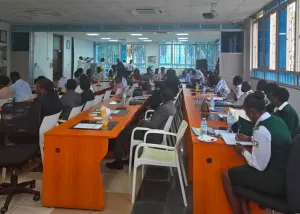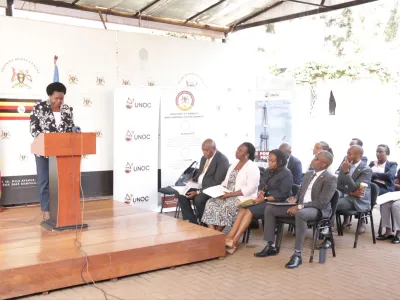

Of late, thousands of Ugandans are migrating to various countries especially Middle East for employment opportunities. This is atttributed to globalisation, trade competition, and rapid technological innovation that have driven economies to adopt cost minimisation approaches including hiring of relatively cheap labour.
Despite high unemployment rates with recent statistics as of 2021 by Uganda Bureau of Statistics (UBOS) indicating 12 percent of willing and able population is unemployed; the majority being youth. This is exacerbated by the Labour Underutilisation with 48% of youth underutilised. This points to the fact that there are far too many people chasing very few jobs.
Evidence shows that unemployment is detrimental to Uganda’s economic growth prospects. For instance, in their paper on unemployment in Uganda, Ssebulime & Muvawala (2019) found that Uganda loses approximately UGX 6.7 Trillion, an equivalent of USD 1.8 Billion annually due to the current unemployment rate.
They add that this cost is even higher when estimates include labour provided by volunteers and unpaid family workers whose services are not translated into monetary terms.
The 2024 figures on unemployment by the Uganda Bureau of Statistics show that only 55.6 % persons aged 14-64 years registered as working, an indication of a clear gap in employment.
Whereas industrialisation is key to employing a significant population, efforts to improve sectors that are under-tapped are necessary. For the industrial sector, it is unevenly concentrated with majority of the industries situated in urban and semi-urban centres undermining the possibility of inclusive economic growth since Uganda’s population is largely rural. This worsens rural-urban migration, underemployment, and brain drain.
For instance, agriculture has a greater potential if inputs and value addition is emphasized. Tourism and entertainment all stand a higher chance especially as the country tends towards middle income status.
Economic theory (Engel’s Law) has it that as people’s incomes increase, their expenditures towards leisure (recreation) increases. This positions the leisure industry as a potential investment sector.
Given the high unemployment rates in the country, deliberate attempts have been adopted to externalise labour to various countries including legalisation of labour exporting companies that have proliferated in the country.
Even though the current statistics indicate that more remittances are realised from this effort as of Bank of Uganda -Macroeconomic indicators’ report of 2024 (897.3 (Fy 08/09) to 1,457.5 (Fy 2022/23), gross abuse of human rights have been reported particularly i human trafficking, and mistreatment of workers especially domestic staff. The growth in remittances clearly demonstrates that labour externationilisation can contribute to the economy at individual and macro levels but this requires a well-streamlined legal and regulatory framework such as a minimimum wage policy, strict labour laws, and human rights-based approaches to prevent any form of labour exploitation and inhuman treatment.
Efforts therefore need to be undertaken to improve the skills of people to attract more compensation for their labour as well as ensuring that their human rights are respected by the employers abroad. The current status quo of externalising less skilled individuals whose expertise does not significantly attract higher compensation narrows the country’s remittances potential and continues to exert pressure on government to protect and rescue its exported workforce.
Mr. Richard Ssempala is a Lecturer-Makerere University School of Economics
Ssempala25@yahoo.com
+256700274764













Richard Ssempala
Mr. Richard Sempala is a Lecturer at Makerere University school of Economics
Leave a Comment
Your email address will not be published.